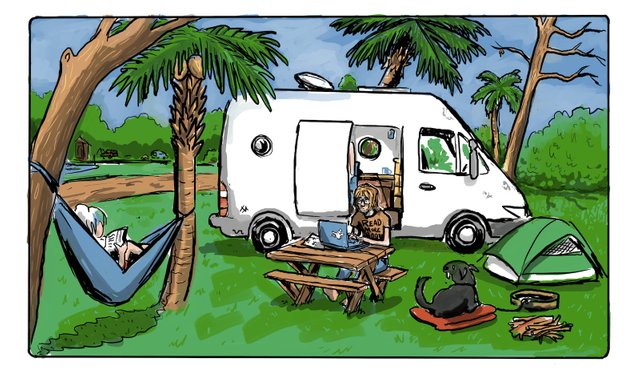Vanlife: some thoughts
Living in a camper or mobile home used to be considered a marginal phenomenon and was mainly associated with dropouts, showmen, hippies and marginalized groups.

Today this concept has evolved and is known as Vanlife and has become a new way of life and travel.
The minimalist approach and the concept reduced to the bare essentials also appealed to me and my wife, but rather never let go. Which means that we are now planning to expand a minibus or van and want to live in it.
In this post I would like to take a look at the topic of vanlife and what goes with it.
What does vanlife mean?
Literally translated, the word vanlife means nothing more than living in a van. This can be permanent, but also limited in time during a vacation or over the weekend.
The history of vanlife
At the end of the 2000s, the American photo artist Foster Huntington used the hashtag #vanlife for the first time. This term brought the previously somewhat outdated lifestyle back into conversation and public awareness.
Living in a mobile device is actually not a new development. As early as the 18th century, the Roma and Sinti, as nomads, showed in their horse-drawn carriages to travel and live across the world.
What until then was considered a small niche or was not really noticed by many now has over 8,000,000 posts on the hashtag #vanlife on Instagram alone.
Vanlife in Germany
It took some time, around 2016 the vanlife trend slowly "spilled over" to Germany. As in America before, a large (and still growing) community of fans of this lifestyle and travel style formed relatively quickly here in Europe.
With vanlife, the niche of DIY campers, i.e. self-made mobile homes, became more and more popular.
Used as well as new vans and buses, such as the Bulli, are now selling like sliced bread. And their proud owners convert them into cozy mobile homes.